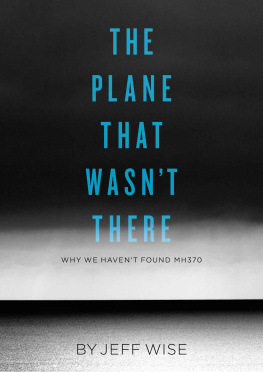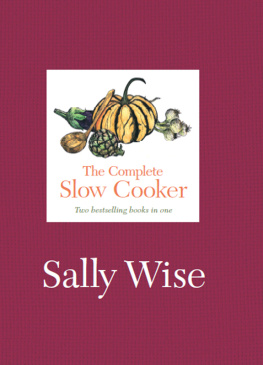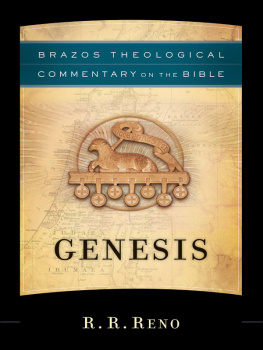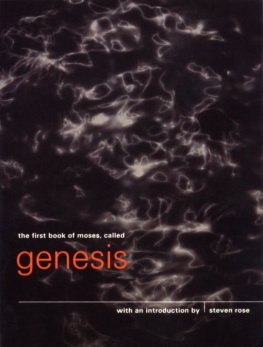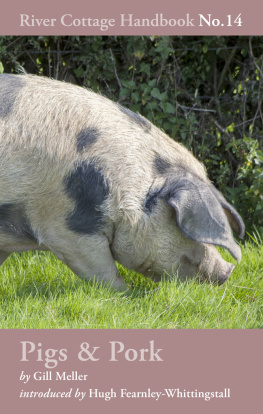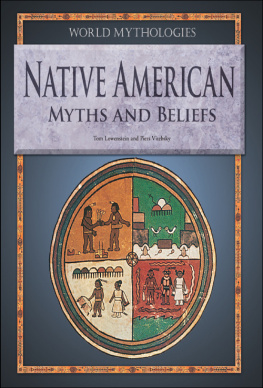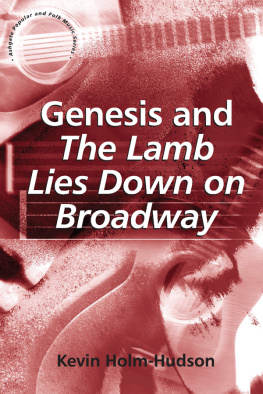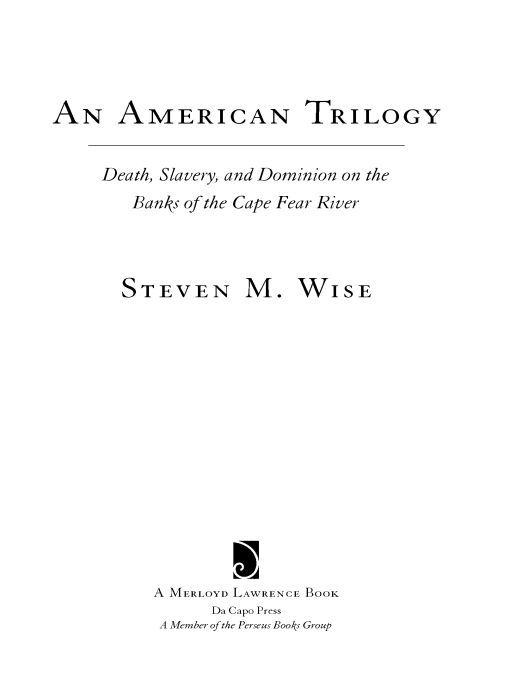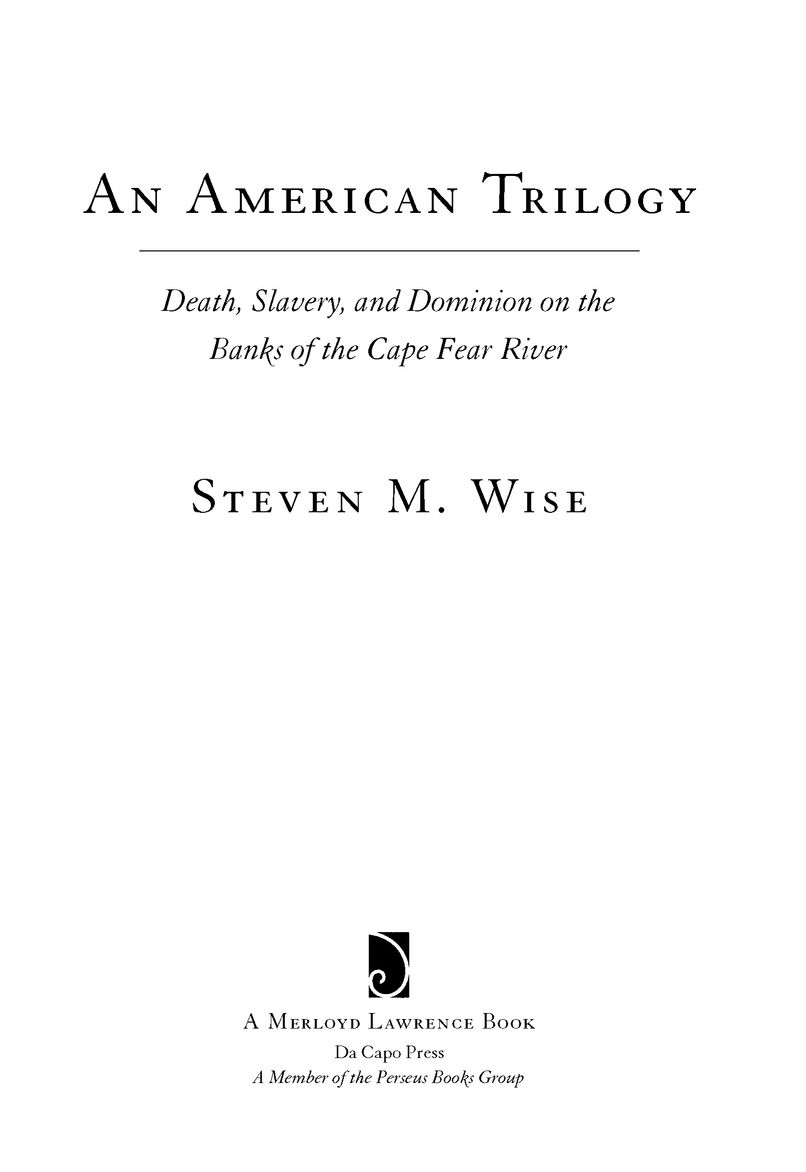Table of Contents
Also by Steven M. Wise
RATTLING THE CAGE
Towards Legal Rights for Animals
DRAWING THE LINE
Science and the Case for Animal Rights
THOUGH THE HEAVENS MAY FALL
The Landmark Trial that Led to the End of Human Slavery
TO MR. NIKITA,
a modern Thomas Clarkson
PROLOGUE
In the fall of 2008, I learned that an undercover agent working for People for the Ethical Treatment of Animals (PETA) had been investigating reports of cruelty at a large hog-breeding farm. I asked PETA lawyer Dan Paden to send me some video showing what their agent had seen. I had watched video taken at another hog farm by another PETA undercover operative, whom I called Mr. Nikita. I had spent months interviewing Mr. Nikita, visiting a North Carolina industrial hog farm, attempting to gain access to the worlds largest slaughterhouse, located in Tar Heel, North Carolina, interviewing some of its former workers, as well as a Pork Visionary, and examining whatever was on display at the 2007 World Pork Expo. This included heavy-steel gestation and farrowing crates so small that a sow could not turn around or lie comfortably within them, the dead sleds and carcass carts that made it convenient to remove the dead sows from their cages, and the incinerators and crematoria required to dispose of their bodies.
I thought that nothing we humans do to pigs could upend me. Then Paden sent me a four-minute highlights clip of what the latest farm investigator had seen. It took me an hour and a half before I was able to finish it. I challenge you to watch with equanimity a man repeatedly smash the heads of tiny piglets onto a cement floor.
In this book, I do not recite the atrocities we perpetuate upon pigs. Instead, I discuss why we think its okay to inflict them. And that discussion will bring us to the study of history. After I visited the Tar Heel slaughterhouse and Bladen Countys industrial pig farms, I discovered that this slaughterhouse, and possibly a factory pig farm or two, rested on what were once the fields of a plantation. On it black slaves had probably raised cotton, for there was enough cotton being raised around it when I was there. I could almost see the old Walnut Grove manor house from the parking lot of the gigantic slaughterhouse complex. Later I understood that both slaughterhouse and plantation occupied ground upon which had strode, and likely lived, Native Americans. These Indians had for centuries admired animals, believed that they were inherently deserving of respect, and given them the respect to which they were entitled. How had we moved, I wondered, from them to us?
North Carolinas settlers were mostly Protestant, mostly Englishmen. They brought their Bibles with them and located varied alleged Divine justifications for exterminating Indians, enslaving Africans, and inflicting hideous cruelties upon mother pigs and their babies, all within a book within that Book, the Book of Genesis. The stories of how the Indian genocide, black chattel slavery, and the war upon pigs were perpetrated, how the first two were overturned by the religious themselves, and how the justification for the last is being vigorously challenged today, again by the religious, is An American Trilogy.
CHAPTER ONE
Tar Heel Foundations
[A] lot of common sense has proved, in other times and places, to be both blind and cruel. In North America, common sense once included the idea that slavery was a natural state of affairs, that women should not vote, and that only heterosexuals were worthy of respect. Good riddance to all that. Long-standing miseries cant be cured until the overthrow of the certainties that support them.
David Berreby, US AND THEM (2005)
The role of the historian is to understand the intellectual universe which justified slavery, segregation and imperialism, however much he may deplore these phenomena; similarly, the historian hopes that his or her own generation will not be demonised by future generations for eating meat, say, or despoiling the environmentor some other offence of which the present is barely conscious. Indeed, if history shows anything, it is the failure of past generations to predict which aspects of their moral life future generations will find intolerable.
Colin Kidd
IN 1990, SMITHFIELD FOODS of Virginia announced its intention to construct a slaughterhouse on 160 acres of rural Bladen County, at Tar Heel, in North Carolina. It was to be the largest abattoir in the world, certainly the largest construction project ever undertaken in Bladen County. Two years later, the gigantic 973,000-square-foot slaughterhouse complex opened for business. In the summer of 2007, I made my first trip to visit it, as well as some of Bladen Countys industrial pig farms.
As I approached the intersection of River Road from the south along NC Route 87, I could see Tar Heels downtown shimmering. Through thick and hazy three-digit-degree August heat, I made out a Subway restaurant, Allens Tire, Clarks Chapel AME, Zion Church, Minuteman Food Market, Tienda Hispania, the Faith Deliverance Ministries, Tar Heel Middle School, Tar Heel Realty, a U.S. post office, and Tar Heel Treasures and Gifts, which was shuttered. West down River Road stood the Tar Heel Rural Volunteer Fire Department, north was the Smithfield Family Medical Center and Pharmacy, and the Smithfield Employment Center stood on Route 87s northeast side. That was it for Tar Heel. I have returned twice more, and never seen anyone walking.
With a population of 65 and an area of 147 acres, the entire town of Tar Heel is slightly smaller than the slaughterhouse complex; its population is dwarfed by the number of slaughterhouse employees. The high wide boxes of the slaughterhouse stretch half a mile and sit directly across the street from the Smithfield medical and employment centers. Every day 38,000 pigs are trucked into these giant, whitewashed, windowless caskets, where they are killed, then cut to pieces9 million a year. Bladen County is thinly settled; its entire human population is just 33,000. The quiet parking lots of the slaughterhouse complex are filled with battered, aging, American automobiles. When shifts change, their owners, a couple thousand mostly brown and black faces, pour from the boxesthe knockers, stickers, shacklers, tub dumpers, knuckle droppers, caul pullers, fell cutters, rumpers, splitters, vat dippers, skinners, gutters, and others who spend their days disassembling freshly killed pigs. Cars line the single exit from the slaughterhouse complex to Route 87, ferrying hundreds out, passing identical cars carrying hundreds more in.
Bladen County is also home to one of the heaviest concentrations of industrial pig farms in the world. They feed the slaughterhouse. In 2006, 815,000 pigs were raised on the countys factory farms, 24 pigs for each human resident. Some of the pig farms are so near the slaughterhouse complex that their owners complained to me of the stink. Any stench that would make pig farmers complain will knock you and me over. I wanted to see how these thousands of pigs lived and how the millions died. I wanted to know why pigs were living and dying in such quantities in Bladen County in particular. As a lawyer, I know that the present uncoupled from its past can appear arbitrary and incomprehensible. I needed to probe Bladen Countys past to understand its present. And, perhaps, to help determine its future.



